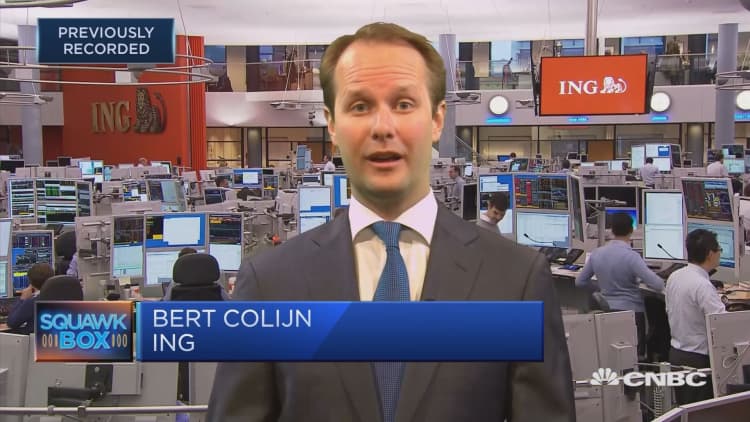Market players are closely monitoring data in the euro area over the next few weeks to see whether the European Central Bank (ECB) might be forced to extend monetary stimulus.
Recent data across the euro zone has shown that economic activity in the region could be slowing down, raising doubts over the future of monetary policy.
In the wake of the sovereign debt crisis, the ECB has kept fueling economic activity with its quantitative easing (QE) program. But given the improved growth and inflation rates seen throughout 2017, many analysts started forecasting that QE will come to an end in September, when it is due to expire.
However, some analysts have become pessimistic on the prospects of the euro area over the last few weeks, due to lower retail sales and industrial production numbers.
"We think (an extension of QE) is possible," Bill Blain, strategist and head of capital markets at Mint Partners, told CNBC via email.
"The key will be the next few data series — particularly PMIs (Purchasing Managers' Index). If we get the kind of strength the market was expecting it will show recovery is back on track and therefore (it is time to) taper," he added. But if "weak data continues, it will certainly put the ECB back into wait-and-see mode."

ECB President Mario Draghi gave no clues about the future of QE during a press conference in April. Analysts are expecting details on the future of the 30 billion euro ($36 billion) monthly asset purchase programme by July, at the latest.
Bert Colijn, senior euro zone economist at ING, told CNBC's "Squawk Box Europe" on Tuesday that the recent euro data "makes it difficult for the ECB to move quite aggressively at the moment."
He also said that the euphoric sentiment seen in Europe last year might be out of the question in 2018.
"We do think an (QE) extension is increasingly likely," Colijn said, adding that such an extension could last until December, or even into 2019.
Some argue that an extension into next year would only be plausible if upcoming data were to become significantly weaker.
Erik Nielsen, group chief economist at UniCredit, told CNBC via email that he expects the ECB will announce in July a gradual phase out of the program during the last quarter of the year.
"The macro numbers would have to get a good deal weaker from here for them to extend QE into 2019," he said.
The next ECB monetary policy meeting takes place in Riga, Latvia, on June 14.


